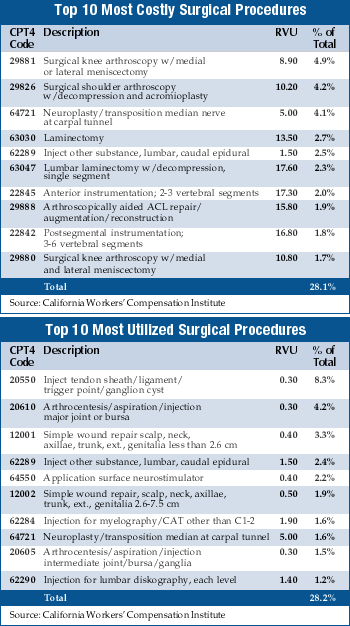Could a routine medical procedure lead to financial ruin? For one Florida woman, a necessary surgery resulted in a bill exceeding $150,000, a stark reminder of the complexities and potential pitfalls of the healthcare system and the critical importance of understanding your insurance coverage.
The case of Madeline Rogers, a resident of Zephyrhills, Florida, highlights a common yet often devastating scenario: a denied insurance claim leading to exorbitant medical debt. Rogers, faced with the prospect of owing a staggering sum, turned to the ABC Action News I-Team for assistance. This case underscores the power of investigative journalism and the vital role it plays in advocating for individuals navigating the labyrinthine world of healthcare and insurance.
The complexities of the healthcare and insurance industries can often leave individuals feeling overwhelmed and vulnerable. The seemingly straightforward process of receiving medical care can quickly devolve into a battleground of paperwork, technical jargon, and potentially, financial ruin. This can lead to an already difficult medical situation to become even more stressful and difficult.
Let's examine the key aspects that make up insurance claim denial.
| Key Aspect | Details | Example |
|---|---|---|
| Pre-existing Conditions | Many policies deny coverage for pre-existing medical conditions. This often involves scrutiny of medical history. | A policy might deny a claim related to back pain if the patient had previous back issues. |
| Experimental Treatments | Insurers may refuse to cover treatments considered experimental or not yet approved by regulatory bodies. | A new form of cancer therapy might be denied due to lack of widespread clinical trials. |
| Lack of Medical Necessity | Insurance companies assess whether a procedure is medically necessary. This is a major point of contention. | A cosmetic procedure, not deemed essential for health, may be denied. |
| Policy Exclusions | Policies list specific exclusions, such as certain procedures, treatments, or locations of care. | Coverage for dental work might be separate or absent in a standard health insurance policy. |
| Network Limitations | Using out-of-network providers can lead to claim denials or reduced coverage. | Seeking care from a specialist not covered by the insurance network can result in a denied or reduced payment. |
| Documentation Issues | Incomplete or inaccurate paperwork and missing information can lead to denials. | Failure to include required medical records or codes with a claim. |
The experience of the Zephyrhills woman highlights the potential for significant financial hardship in the wake of a denied insurance claim. Without intervention, individuals can find themselves facing insurmountable debt, potentially leading to significant stress, impacting both their financial stability and overall well-being. The involvement of the I-Team served as a crucial bridge, assisting the woman in navigating the complex insurance landscape. The story serves as a cautionary tale and a call to action.
Similar situations have been documented in various locations, and often result in unfavorable outcomes for the patient. For instance, legal cases across the country reveal that insurance companies frequently challenge claims. These challenges can include assertions of pre-existing conditions, a lack of medical necessity, or failure to adhere to policy terms.
Insurance companies sometimes deny payment for claims, and this can happen for many reasons. One of the reasons is the assessment of medical necessity. Insurers may deny claims if they believe a procedure or treatment isn't medically required. Another factor is a lack of adequate documentation. Claims might be rejected if the information is missing or incomplete.
Furthermore, the utilization of in-network vs. out-of-network providers plays a crucial role. Seeking care from out-of-network providers might lead to a denial, or reduced coverage. It is important to confirm that providers are in your insurance network to ensure your care is covered.
The legal landscape surrounding insurance disputes is often complex. Some legal professionals specialize in assisting individuals whose claims have been unfairly denied. These attorneys can represent their clients and fight for just outcomes, and offer services like free consultations, to help the aggrieved.
These professionals often handle a variety of bad-faith insurance practices, including denying claims without thorough investigation or unfairly undervaluing claims. They have the experience to take a deep dive into the reasons behind denials, and find a solution for their clients.
Another relevant case involved a head-on collision in Decatur, where the insurance company initially denied fault. Only after a lawsuit was filed did the insurer acknowledge responsibility. The settlement was $150,000.
These cases are important to show the challenges people face when dealing with insurance companies, and to offer examples of how legal intervention can make a difference.
The cases mentioned in the provided content, and countless others like them, spotlight the vulnerability of individuals navigating the healthcare system. The complexities of insurance policies, the potential for claim denials, and the financial consequences of these denials all point to the need for greater transparency, patient advocacy, and clear communication between insurers, providers, and patients.
Individuals should carefully review their insurance policies, understand their coverage, and seek clarification on any ambiguous terms. Documentation is critical. Keep detailed records of all medical procedures and communication with the insurance company. Should a claim be denied, consider seeking advice from legal professionals who specialize in insurance disputes. Being informed, proactive, and prepared can make all the difference in protecting your financial well-being.



